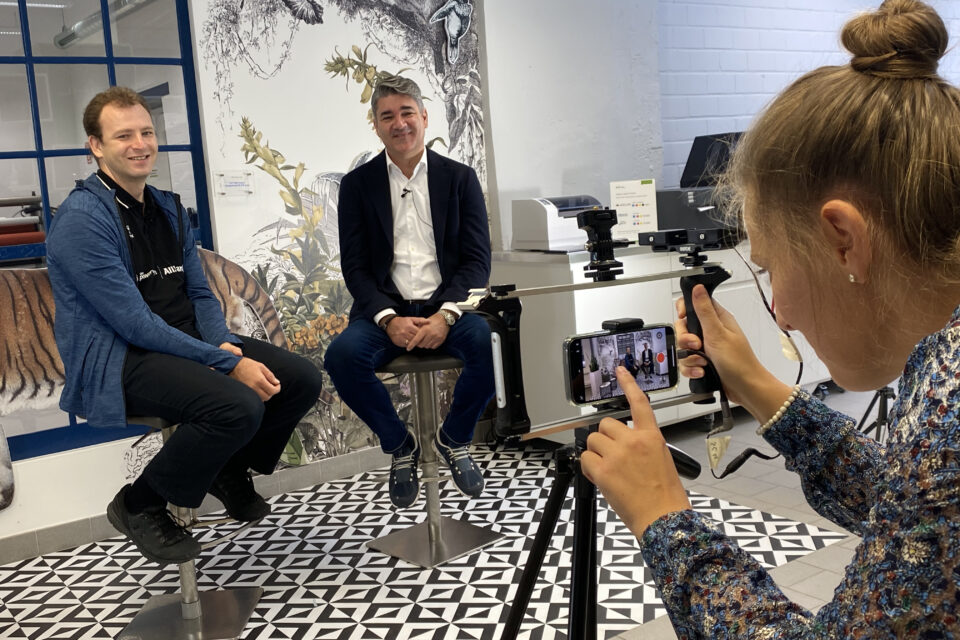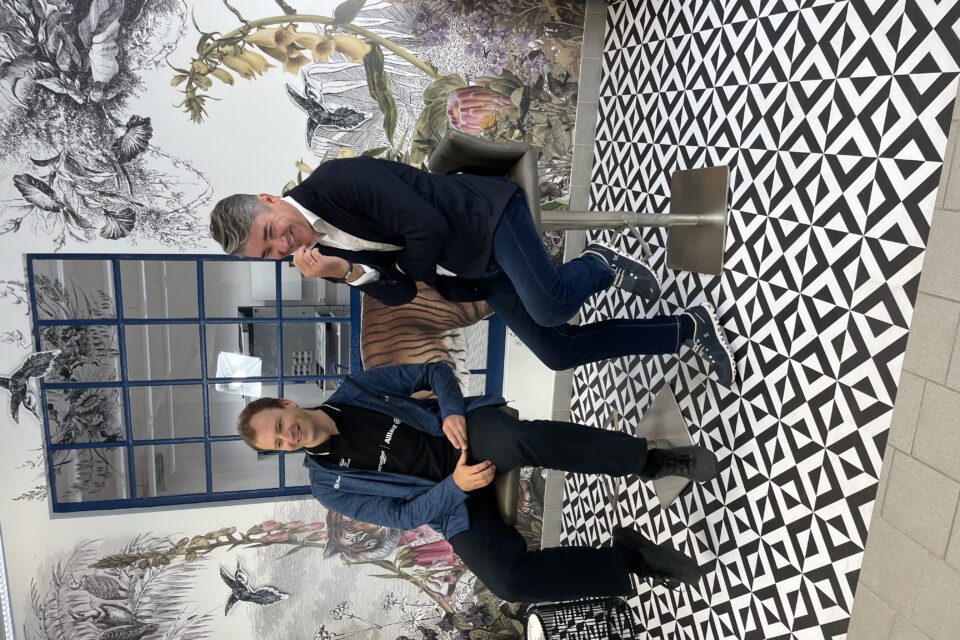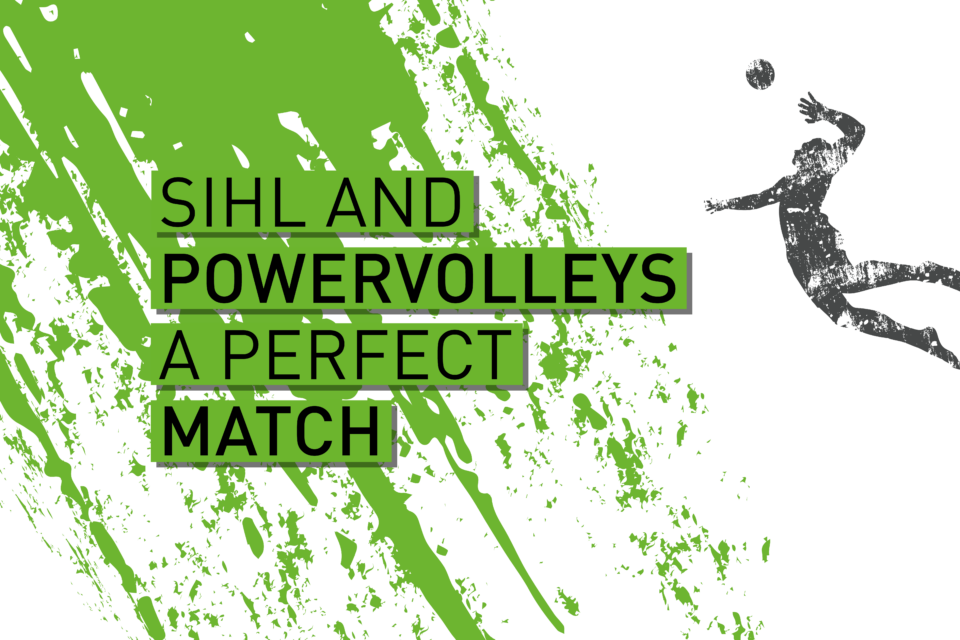The most important thing is the common goal
Similarities between top-class sport & corporate management
Aline Jansen
You are both proven leaders, you want to motivate people week after week and take them with you. What qualities help you the most?
Rafał Murczkiewicz: For me and my work, good communication is most important. My players have to understand me, have to understand what makes me tick. But they also have to know in which direction we want to go together. It is crucial that I always give my boys the feeling that they can come to me at any time to discuss anything. It’s not about imposing my way on our Powervolleys journey together, it’s exclusively about finding the best way for the team.
Stefan Benito: Let me jump in there right away. You talk about the “Powervolleys Journey”, we call it the SIHL Journey. For this journey, we have drawn a common path that we want to follow, that we want to walk. In order for us to succeed, we need good and open communication, similar to you in your team. The big headline is: “Always stay in conversation!” You have to create spaces where you have time to communicate. We do that at SIHL GmbH, for example, with regular meetings at set times. And just like you, my door is always wide open for every employee. As a trainer or even as a boss, it is also important to do everything possible yourself to achieve the stated goal.
Murczkiewicz: Yes, without a doubt. In general, it is important to have a common goal. It should be an ambitious goal, but one that the team or the employees of a company can achieve and for which everyone is willing to make sacrifices.

Who do you involve in important decisions?
Benito: Strategic decisions are made by the SIHL Group Management Team. With all strategic decisions, it is always crucial that they fit into our SIHL Journey and that they are implemented in the end. Decisions in day-to-day business are made by those responsible in each case.
Murczkiewicz: I can’t answer that question so easily because we have a lot of decisions to make every day and it’s always a question of what kind of decisions they are.
That means?
Murczkiewicz: Well, if it’s about tactics and the next opponent, the coaching staff decides. If it’s about the team, we talk to the leading players. If we’re planning the next season, it’s up to the club management.

You speak of common goals, of open, honest communication. What values do you rely on to achieve these goals? What values should characterise your company, your club?
Benito: SIHL GmbH is an innovative, forward-looking, collegial and partnership-based company. To achieve this, we need above all passionate employees with a high sense of responsibility and righteousness who work every day to make the company a success. Our four values are innovation, cooperation, responsibility and passion. In my daily work, I try to balance all four of them, but of course, at the end of the day, it’s always about achieving the company’s goals.
Murczkiewicz: The situation is a bit different for us. We live and work in a world where it’s always about winning, “business of winning” you could also call it. Every week it’s about winning or losing. There is nothing in between. Of course, we also have bigger goals, like winning the German championship or the cup, for example. And basically, we want to constantly improve, optimise our game. But in the end, it’s really all about winning – no matter how. Of course, we always want to play beautiful volleyball. But if we don’t succeed, then we are also happy about an “ugly” victory. Maybe that sounds harsh, but winning or losing is simply our destiny.

We are currently living in a time with huge challenges for the whole of society. There is war in Europe, we are talking about inflation of almost ten percent and skyrocketing energy prices. The pandemic is not over yet. How does this affect your work, your everyday life?
Murzkiewicz: The current events have destroyed the world of sport to a certain extent. I have to say that unfortunately. The Corona pandemic completely paralysed one season, and in the second pandemic season we played in front of empty stands, i.e. without our fans, which was extremely difficult both for the players and for the club, which completely lost spectator income. The war in Ukraine also complicates the situation. The rising energy prices are a challenge for our club – just like for everyone else. In addition, Russian teams are excluded from European competitions. Of course, that is understandable and right. On the other hand, many Russian volleyball players play in European teams and clearly distance themselves from the Russian invasion of Ukraine. From a purely human point of view, the situation is difficult for me to assess.
Benito: The war in Ukraine follows directly on the heels of a global pandemic, rising material costs and major supply chain problems. What I want to say is that even without the terrible war, times would be tremendously challenging for business and industry. The exploding gas and energy costs as a result of the war and people’s fear of the overall situation potentiate this even more. We are living in a real crisis and may be heading for a recession in Germany. Politicians and society must work together to find viable solutions. In this context, it should also be the task of people in leadership positions to emphasise the positive things, to spread optimism and to point out opportunities.
What opportunities do you see in the current situation?
Benito: For example, that the current energy crisis will finally lead us to focus even more on the expansion of renewable energies. Moreover, we live in a country where we can speak our minds freely, where we are allowed to do what we want. And we live in peace.
Murczkiewicz: You are right. We need more optimism, we need to focus on supporting each other and helping the people who need our help.

